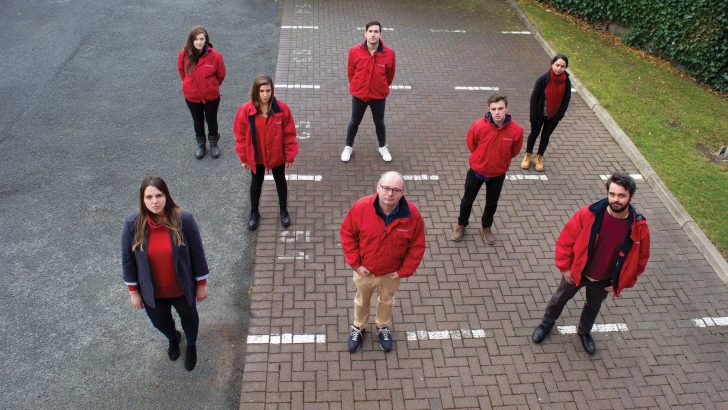“You’re like a broken record,” a friend said to me at the weekend (from a safe distance). Half-joking, half-serious he was referring to the fact that I was – again – bending his ear about the injustice of the draconian restrictions on public worship. This weekend, the North will join the Republic with parishioners unable to gather together for worship.
Dreadful year
This dreadful year – when so many people have died, gotten sick and lost their livelihoods and equilibrium – has brought the freedoms we have taken for granted into sharp focus. For the first time since Penal Days, Catholics have been forbidden to gather for worship. This is not – as some hurlers on the ditch have alleged – to claim that those of us annoyed about this are comparing the two. There is a world of difference between being denied the right to worship and being slaughtered for professing the Catholic Faith. But, the absence of torture and martyrdom should hardly be the yardstick for religious freedom.
This week Aid to the Church in Need Ireland marks the annual ‘Week of Witness’ highlighting the persecution of Christians around the world. Last year, this newspaper began a new tradition – turning the masthead from the trademark blue to red to highlight the blood that is shed daily around the world by our brothers and sisters in the suffering Church.
A masthead is a newspaper’s identity, and a decision to modify it is not made lightly or without just cause. Red Wednesday and the Week of Witness is a time when Catholics are called to pray, reflect and show solidarity with the suffering Church.
Aid to the Church in Need Ireland estimates that more than 245 million Christians face extreme persecution for their Faith in our world today. It is, without question, the greatest human rights issue of this generation – and yet, many politicians are silent on the precarious situation of Christians all over the globe.
Absence
The absence of public Mass during the pandemic has made many of us realise the freedom we took for granted. Many of our fellow Christians around the world have no such luxury. They attend Mass under threat of intimidation, discrimination and even the risk of losing their lives.
First and foremost, as people of faith prayer is key. But, our Faith is empty unless it compels us to act. We must educate ourselves about the persecution, be unafraid to speak of it and encourage our politicians to be more vocal in condemning it and putting pressure on regimes hostile towards Christians.
Ireland is due to take up a seat on the United Nations Security Council in January. What a powerful witness it would be to an indifferent world if the Government said ‘enough’ to the complicity of silence and decided to speak up.


 Michael Kelly
Michael Kelly Members of The Irish Catholic team donned red as part of Aid to the Church in Need’s Week of Witness, which highlights the plight of
persecuted Christians throughout the world
Members of The Irish Catholic team donned red as part of Aid to the Church in Need’s Week of Witness, which highlights the plight of
persecuted Christians throughout the world 